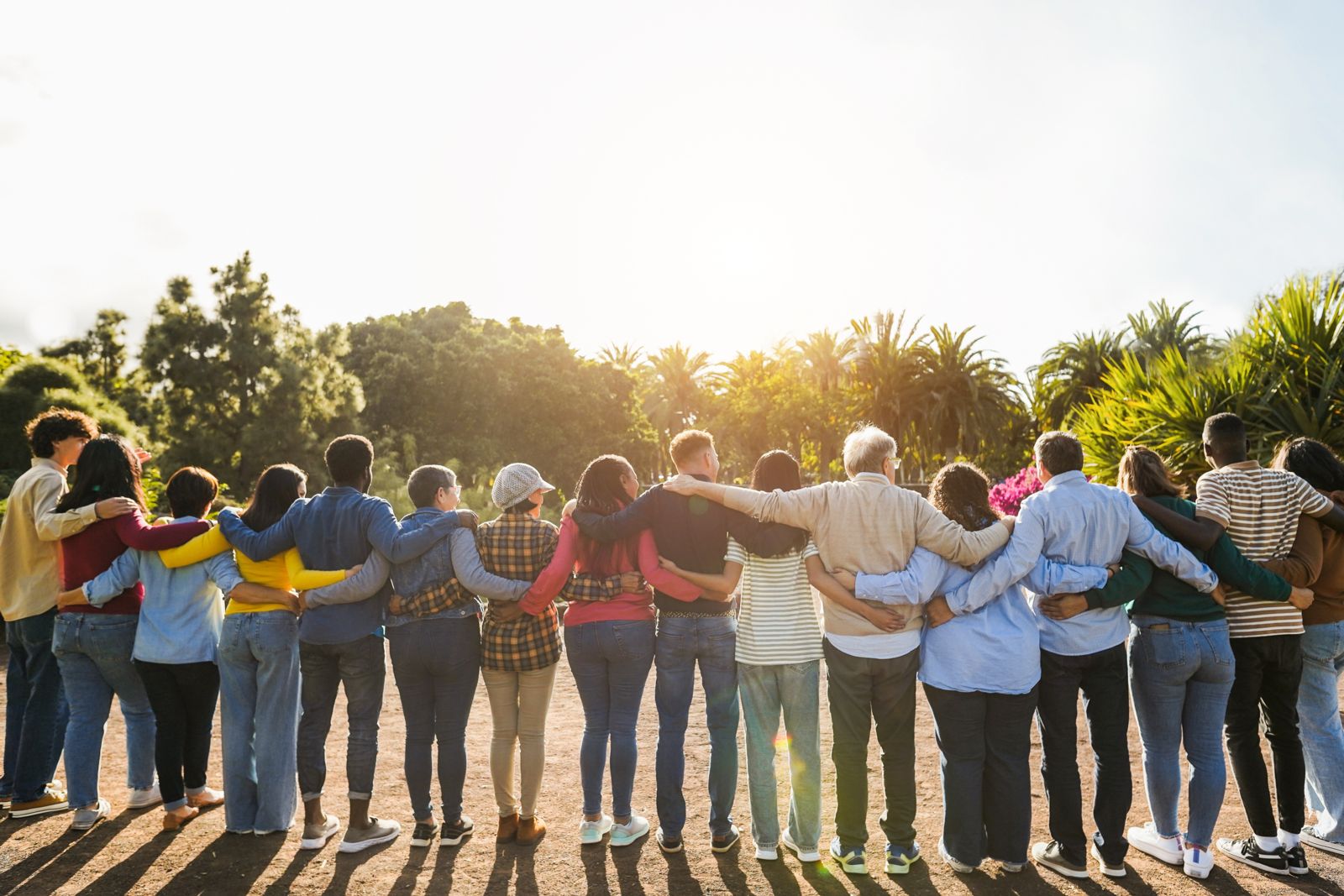Arundhati Roy described the pandemic as a portal. Throughout the world, these openings inspired communities to unite, rise up, and engage in participatory action—to demand collective liberation.
To understand the shape that social justice movements are taking around the world, as communities engaged in human rights we have to make visible the connections between participatory action, mutual aid, and legal empowerment. Though the language used to describe these openings may be different depending on one’s local context and history, we have been struck by how mutual aid movements swell in response to the collective trauma and collective learning in both Latin America and in North America. We have also noticed that these stories do not make it into the mainstream conversations about social movements.
In Argentina, informal settlements were a site of necessary and transformative solidarity. Instead of the individualization proposed by mainstream care policies, mutual aid practices prevailed as a response, rejecting colonial practices of charity and refusing to replicate hierarchical approaches to legal empowerment. Their power is derived from cooperation and relationships. These social practices have long existed in Argentina in Buenos Aires—and in the vast majority of countries in the Global South. However, in the informal settlements, they became stronger during the pandemic.
Feminist and LGBTQI+ movements in Argentina similarly moved from the streets into the institutions during this period. It was the first time that a Ministry of Women, Genders and Diversity was created in Argentina and was established at the same time that abortion was legalized and official documents now include identification for nonbinary individuals. These transformations are part of the struggle promoted by the National Campaign for the Right to Legal, Safe and Free Abortion, begun in 2003, and the Ni Una Menos Movement in 2015—they did not sprout up during the pandemic, but like mycelium deep beneath the surface of the soil, these changes that became visible during the pandemic were only possible because of sustained movements.
Mushrooms emerge from the soil after the rain, but their growth would not be possible without the vast network of mycelium that connects the ecosystem. The trauma caused by the pandemic rained down on communities, but the changes we have seen in human rights emerged because of long-standing participatory movements that have nourished and rooted communities long before 2020.
As in Argentina, grassroots movements have had a long tradition of organizing to meet community needs in the United States, including in Chicago. Still, when COVID-19 hit, the wider community became aware of the explicit danger that those who were detained in US Immigration Customs and Enforcements detention centers were facing. Many individuals participated in collective actions for the first time in 2020. Different movements for human rights, some focused on undocumented or Black communities, joined together when these shared interests became visible around abolition.
The social uprisings around the US after the police shootings in 2020 created not only a movement but also a new political consciousness. Suddenly, abolishing violent systems like ICE became part of the mainstream narrative. Groups like Organizing Communities Against Deportations (OCAD), who have long engaged in participatory action, were able to invite others to join and amplify the momentum of the movement that has long been brewing.
OCAD, because of its involvement with the movement for many years, could focus on long-term transformation instead of only responding to immediate crises. Court hearings for deportations were halted and scheduled years in the future due to the threat of COVID-19, and a space emerged to allow activists to focus more time and resources on freeing those inside detention centers. During this time of public awareness, long-time organizers were able to mobilize the newly activated community to elect progressive legislators into the local government. Having these allies at the city and state level has institutionalized the movement. The opportunity for OCAD to close private detention centers not only demonstrates how participatory legal empowerment movements can reshape local laws but also how these demands can create a template at the state level that can be applied in other locations.
While the narrative that circulated about movements made it appear as though they developed in response to the pandemic, in many cases, as in OCAD’s situation, these mutual aid movements were already care-filled systems that have been engaging in mutual support for many years. Yet, over the past year, we have noticed new narratives about these movements fizzling out.
While there is a need to discuss exhaustion in the face of often heartbreaking and insurmountable injustices, these movements continue to cultivate political consciousness and to sustain the struggle. These sustaining activities are also ways of working through the exhaustion and finding new energy to sustain the struggle.
In Chicago, and around the US, many mutual aid projects in which neighbors feed neighbors or check on each other have grown smaller, but these changes are not necessarily reflective of the broader movement toward human rights through participatory action and legal empowerment. In that city, those who were activated during the pandemic did not engage in a transactional exchange, but there were deliberate efforts to engage in deep learning about these issues. While at the height of the pandemic, the number of people who participated in regular meetings at OCAD were higher than they are now, there is a sense that even those members who no longer attend have information and continue to pay attention to issues.
These movements were never transactional or service-oriented. They have always been centered on mutual aid, providing support to one another, learning together. The portals toward liberation were created by these communities long before the pandemic. Mutual aid movements that have enacted participatory action have never been at the whim of trends but are about the deep transformation needed to move everyone closer to collective liberation. The changes that have happened since March 2020 are deep and, like the underground network of fungi that provides sustenance to the entire forest, we know these efforts will bloom when needed.

